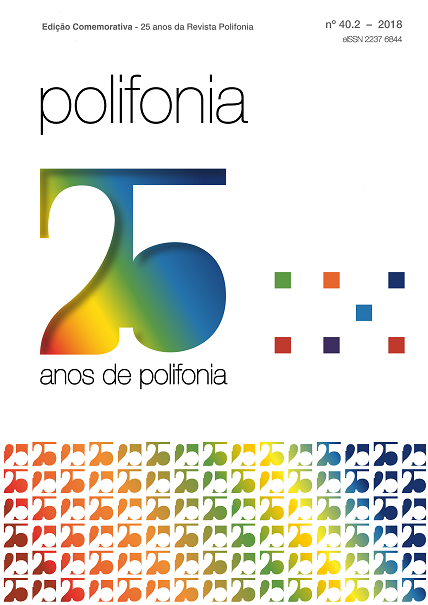Heptapod B and the Metaphysics of Time – Hybrid Interfaces of Literature, Cinema and Science
Palavras-chave:
metafísica do tempo. princípio de Fermat. Heptapod B.Resumo
In this paper, we intend to promote an analysis of the use of the artificial language Heptapod B present in Story of Your Life (1998) written by Ted Chiang and in its filmic adaptation, Arrival (2016), written by Eric Heisserer and directed by Denis Villeneuve in relation to the authors’ views on the metaphysics of time. In both literary and filmic texts, the glossopoeia is used as a plot device upon which the alien race’s time perception is constructed and explicated in connexion with the strong metaphor provided by Fermat’s principle of least time. Throughout the article, we discuss these hybrid interfaces of literature, cinema and science, researching the stories’ specific diegeses, the writers’ own elicitations as well as various texts on the philosophy of time. The end result consists of a comprehensive exegesis of the problematics generated by the narratives and an extensive philosophical debate on the subject.
Referências
BORODITSKY, Lera. Does language shape Thought? Mandarin and English Speakers’ Conceptions of Time. Stanford: Stanford University, 2001.
CHIANG, Ted. “Story of your life in: The Stories of Your Life and Others.” Northampton: Vintage books, 1998.
CURTIS, Benjamin L.; ROBSON, Jon. A Critical Introduction to the Metaphysics of Time. London: Bloomsbury Academic, 2016.
HEISSERER, Eric. Arrival (Screenplay). Los Angeles, Paramount Pictures, 2016 Available at: <http://www.paramountguilds.com/pdf/arrival.pdf > Access: 24/01/2016.
ISENBERG, James. General relativity, time and determinism. Salem: University of Oregon, 2016.
KAWAMOTO, Marcia Tiemy Morita, The Question of Time in Science Fiction Films: An investigation on Modernism, Postmodernism and Post-Postmodernism(?). Florianópolis: Universidade Federal de Santa Catarina, 2016.
NUSSENZVEIG, Moysés H. Curso de Física Básica 4: Ótica, Relatividade, Física Quântica. São Paulo: Editora Edgard Blücher ltda, 1998.
TODD, Robert B. “The Four Causes: Aristotle’s Exposition and the Ancients.” Journal of the History of Ideas, vol. 37, no. 2, 1976, pp. 319–322. Available at: www.jstor.org/stable/2708827. Access: 22.07.2017.
VILLENEUVE, Denis, director. Arrival. Hollywood: Paramount Pictures, 2016.
WELLS, H.G.. The Time Machine. New York: Dover Publications, 1995.



